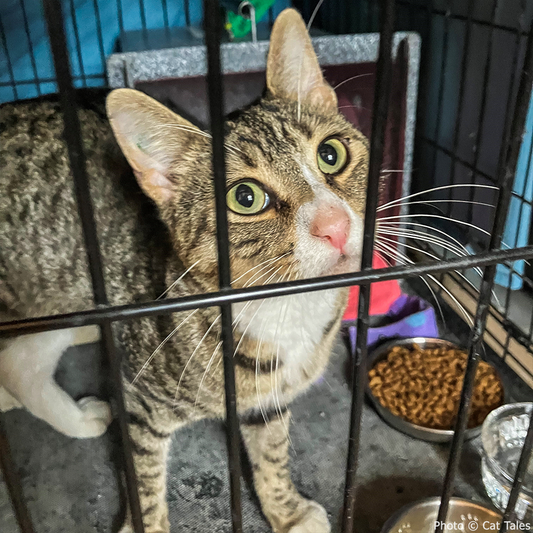Cheese Contamination Sparks Nationwide Fear as Listeria Threatens Lives
Matthew Russell
Photo: Pexels
The U.S. Food and Drug Administration (FDA) recently initiated a series of urgent cheese recalls due to Listeria contamination. This situation has raised alarms about the safety of cheese and dairy products sold across the country.
The recall involves a wide range of products, primarily queso fresco and cotija cheeses, produced by Rizo Lopez Foods, Inc. These cheeses have been linked to a deadly strain of Listeria monocytogenes, a bacterium that poses severe health risks, particularly to vulnerable groups such as pregnant women, children, and those with weakened immune systems.

Widespread Recall Impacting Multiple States
The recall affects consumers nationwide, with products distributed across multiple states, including California, Nevada, Utah, and New York. The contaminated cheeses were sold under various brand names, including Tio Francisco, Rizo Bros, and 365 Whole Foods Market. The FDA's investigation revealed that these products were tainted with Listeria during the cheese-making process, even though they were made from pasteurized milk.
This finding is particularly troubling because pasteurization is typically seen as a safeguard against bacterial contamination. The recall extends beyond cheese, affecting prepared foods like enchiladas and salad kits that contain these cheeses. These products were available in retail locations and some food service establishments, potentially broadening the scope of the contamination.
The severity of the situation prompted the FDA to classify this as a Class 1 recall, the agency’s most serious level, reserved for products that could cause serious health consequences or death. The FDA has been working closely with the Centers for Disease Control and Prevention (CDC) and state health departments to track and contain the outbreak.

Health Risks Linked to Listeria
Listeria is a dangerous bacterium that can cause listeriosis, an infection that leads to symptoms like fever, muscle aches, nausea, and diarrhea. In severe cases, it can result in meningitis or septicemia, which can be fatal. Pregnant women are at particular risk, as listeriosis can lead to miscarriage, stillbirth, or life-threatening infection in newborns.
The CDC has been investigating cases of listeriosis linked to these cheeses, some of which date back several years, indicating that the contamination may have been an ongoing issue, according to the FDA. The recent outbreak has already affected multiple people, with several cases of listeriosis reported across different states. While no deaths have been directly attributed to this recall, the potential for serious health outcomes remains high, especially if contaminated products are still in circulation.

FDA’s Response to the Crisis
In response to the outbreak, the FDA has taken significant steps to mitigate the risks posed by contaminated cheeses. The agency conducted on-site inspections at Rizo Lopez Foods, Inc., where environmental samples tested positive for the same strain of Listeria linked to the illnesses.
Following these findings, the company voluntarily ceased production and initiated a recall of all potentially contaminated products. The FDA has also released a prevention strategy aimed at enhancing the safety of soft fresh queso fresco-type cheeses, emphasizing the need for stricter controls during the cheese-making process.
The FDA’s strategy includes increased collaboration with cheese manufacturers to ensure that best practices are followed to prevent contamination. The agency has also issued a fact sheet to help manufacturers understand the risks associated with Listeria and the importance of maintaining high standards of cleanliness and safety in their facilities.

Ongoing Investigation and Consumer Advice
The FDA’s investigation is ongoing, and the agency is working to identify the full extent of the contamination. The FDA has advised consumers to check their refrigerators and dispose of any recalled products. Consumers who have purchased any of the affected cheeses should not consume them and should instead return them to the place of purchase for a refund.
Those who experience symptoms of listeriosis after consuming these products should seek medical attention immediately, according to USDA FSIS. The FDA has also emphasized the importance of staying informed about food recalls and being vigilant about food safety. The agency regularly updates its website with information on recalls and outbreaks, and consumers are encouraged to report any adverse effects or issues related to recalled products.

Looking Forward
The cheese recalls have highlighted the ongoing challenges in ensuring the safety of food products, particularly those that are prone to bacterial contamination. The FDA prevention strategy, coupled with increased awareness among consumers and manufacturers, will be key to preventing future outbreaks and ensuring that incidents like this do not happen again.
Click below to support safe food inspections and healthy cheese.
Matthew Russell is a West Michigan native and with a background in journalism, data analysis, cartography and design thinking. He likes to learn new things and solve old problems whenever possible, and enjoys bicycling, spending time with his daughters, and coffee.




















